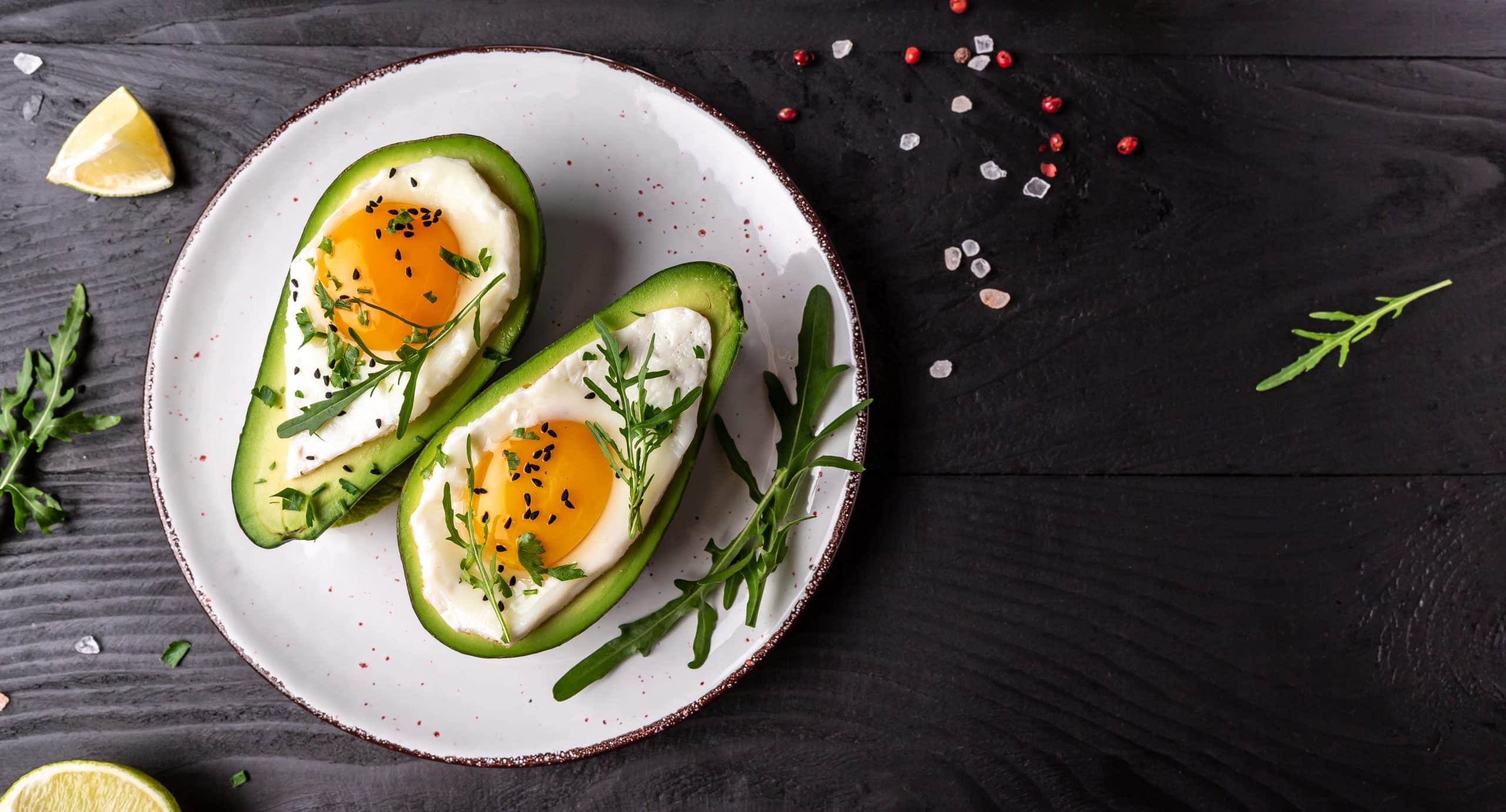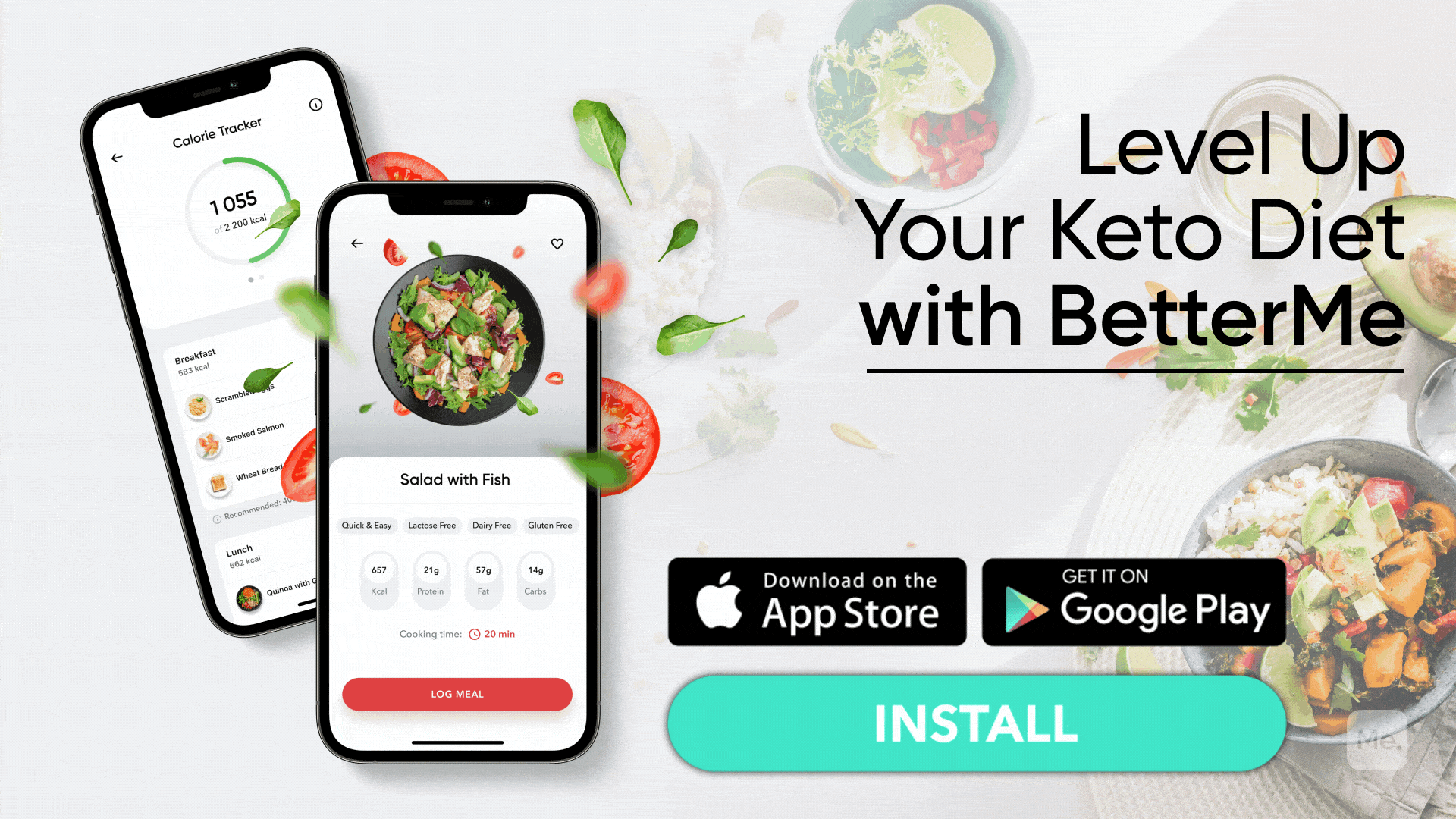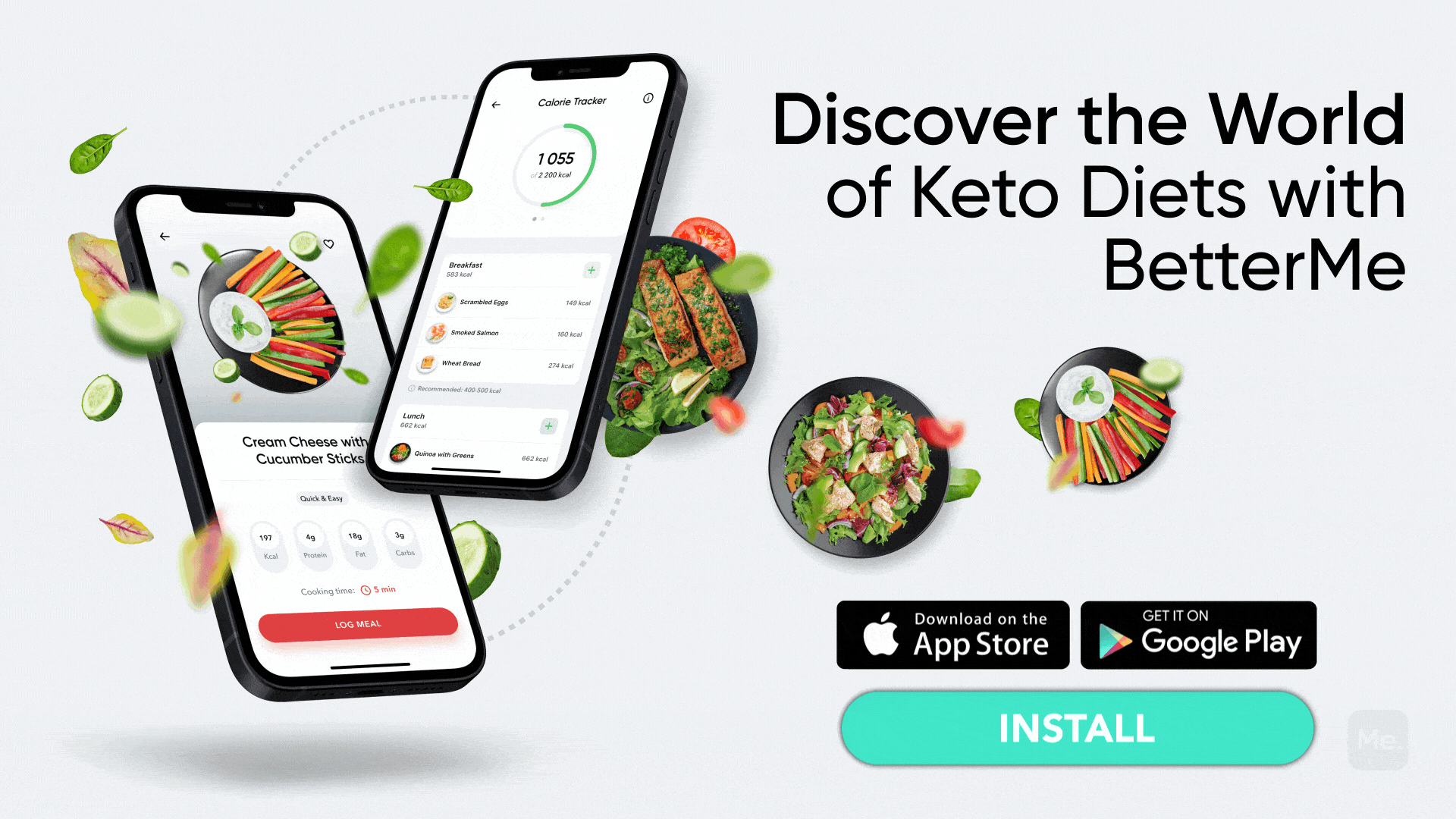If you were to open a new tab on your search engine right now and look up “best weight loss diets”, the ketogenic diet would be in the top five – if not the top three – of all the weight loss diet lists you will come across.
In the last few years, this high-fat, low-carb diet has taken over the dieting world due to its unconventional dietary rules. And also for its promises of quick, dramatic, and long-lasting weight loss results.
But is the keto diet really all it’s cracked up to be or is it just another weight loss fad? Before deciding to switch up your eating habits to fit the dietary requirements of the keto diet – or any weight loss diet for that matter – it is always a good idea to first learn the pros and cons of your chosen meal plan.
If you’ve been secretly wondering about the pros and cons of the keto diet, then you are in the right place!
In this article, we are going to help you understand what this meal plan is, and what it entails. Including the dos and don’ts, as well as the pros and cons of the keto diet. This will make your transition into this meal plan easier. But being able to understand the keto diet’s pros and cons will also help you make a more informed decision on whether this popular weight loss meal plan is for you or not.
What Is The Keto Diet?
Before diving into a list of keto diet advantages and disadvantages, let’s first understand what this meal plan is and what you would eat if you chose to try it out.
Also known as the ketogenic diet, keto is a high-fat, very-low-carbohydrate diet. Today, this diet is mostly known as a weight-loss meal plan. When it was first introduced back in the 1920s, it was simply intended to be an effective treatment for epilepsy in children who couldn’t be treated with the medication available at the time (7).
But how does one eat on the keto diet? As previously stated, this is a diet of extremes– high-fat, very-low-carbohydrate. On this meal plan, you are required to consume high fats, moderate proteins, and very low carbohydrates with your daily macro intake being 55 to 60 percent fats, 30 to 35 percent protein, and 5 to 10 percent carbohydrates. Your daily intake of carbohydrates on keto is highly controlled as you are generally not allowed to consume more than 50 grams of this macronutrient (14).
Read More: 15 Keto Diet Hacks That Make Keto More Sustainable
How Does Keto Work For Weight Loss?
Ordinarily, our body’s main source of energy is carbohydrates. When we consume carbs, our bodies turn them into glucose which then fuels not only us but also our cells in their day-to-day function. Proponents of the keto diet believe that when you deprive the body of its primary source of fuel, such as carbs, it will find an alternative source to burn to fuel itself and you.
Using this logic, they believe that once the body lacks carbs, and thus glucose, to use as a source of energy, it will turn to stored fat; converting them into ketones, which are then used as a fuel source. Theoretically, when you continue to deprive the body of carbs by only ingesting less than 50 grams (sometimes as low as just 20 grams) of the macronutrient per day, your body remains in a ketogenic state where it continues to burn stored fat for fuel– which they claim eventually leads to fat and weight loss (7, 14).
What To & What Not To Eat On The Keto Diet
The keto diet is actually quite simple to follow. If it’s high in carbs, leave it alone; the higher the fat content the better. With that being said, there are two main versions of this eating plan that you can choose from, so-called Clean Keto and Dirty Keto.
People on clean keto will always opt to make their meals using high healthy fat, nutritious, whole foods with little to no processed foods while still maintaining the less than 50 grams of carbs requirement of this meal plan. On the other hand, people on dirty keto – the more popular version of this meal plan – are not too concerned about the level of processing or level of nutritional value in their foods. As long as it’s very low carb and high fat, they are okay with it. Dirty keto, more popularly known as lazy keto, is obviously much easier to follow. However, it often leads to too much sodium and unhealthy fat intake and may lack important micronutrients that your body needs.
With that being said, some foods that are allowed on either version of this meal plan include all kinds of meat, fish and other seafood, poultry, eggs, dairy and dairy products including cheese, low-carb vegetables like leafy greens, peppers, summer squash, cruciferous vegetables, celery and okra, nuts and seeds, all kind of berries, vegetable cooking oils as well as butter and ghee.
You should do your best to avoid high-carb foods like root vegetables, grains and pulses/legumes, starchy vegetables, pasta, and bread, as well as high-carb fruits like bananas, pineapples, grapes, mangoes, apples, and figs, among others.
Yanking yourself back in shape has never been so easy with our game-changing fitness app! Start transforming your life with BetterMe!
What Are The Pros And Cons Of The Keto Diet?
Now that you understand how this meal works and what you can and cannot eat, here are some keto diet pros and cons:
Pros Of Keto
-
Weight Loss
The desire to shed some extra pounds is the reason why many start looking at dieting and may eventually settle for this specific meal plan. Thankfully, the praises about weight loss on this diet are true, at least for some people. According to an older study published in 1981, the lack of carbs in the body leads to a loss in water weight, which is one of the reasons for the drastic weight loss often seen at the beginning of this meal plan (16). The loss of water weight aside, a few studies done over the years have found that when comparing low-fat to low-carb diets, people who consume low-carb tend to lose more weight than those who eat a low-fat diet, at least in the short-term (3, 9, 18, 21).
Some studies which followed up later saw no differences, even if the initial weight loss was greater in the low carb group (3). Still other studies saw no differences in weight loss even in the short term (13). Seeing as keto is one of the most low-carbohydrate diets out there, it is safe to say that some people might notice incredible weight loss results while on it, but no diet works for everyone, especially if it is hard to stick to.
-
Keto Foods Promote Satiety
Other than working out, one of the other ways to lose weight is by eating at a calorie deficit. In order to do this without feeling like you are starving yourself, nutritionists suggest consuming foods that promote satiety in the body. For most people, this would mean consuming fiber-rich foods like whole grains– which, unfortunately, are highly restricted on the keto diet.
Thankfully research has suggested that while this meal plan may be almost devoid of fiber, it has other foods that may promote the feeling of fullness and satisfaction that can prevent you from overeating (15). Studies have also suggested that high-fat foods/diets may help reduce hunger and promote the feeling of satiety by triggering the release of hormones that do just that (10, 12, 2).
It is also important to note that many keto-approved foods, like meats and fish, are high in protein. Not only does protein take more energy to digest, which helps you burn calories at rest, but it too may help promote the feeling of satiety (1, 19).
-
Reduced Blood Sugar And Insulin Levels
This diet has been suggested for use in people with diabetes to help control blood sugar and insulin levels. The reason why this meal plan might help is due to the reduced carbohydrate intake. Remember that when you consume carbohydrates, the digestive system will break them down into sugar (glucose). By restricting this macronutrient in your diet, there’s less chance of spiking your blood sugar levels (5). Some studies have also shown that reducing the intake of carbs can meaningfully lower both blood sugar and insulin levels, and may lead to a reduced reliance on insulin and other glucose-lowering medication in people with type 2 diabetes (11, 6, 22).
However, the ketogenic diet is a very extreme form of carbohydrate restriction which may not be safe for everyone, especially people with diabetes who can experience dangerous low blood sugar levels as well as high ones. Always talk to your doctor before making any major dietary changes, especially if you have a medical condition or are on any medications.
Read More: Post Workout Keto Snacks And Meal Ideas To Help You Fuel And Recharge
-
May Improve The Symptoms Of Certain Brain Disorders
As previously mentioned, this diet was first introduced as a way to help children with epilepsy who could not find relief through normal treatment– something that was very successful and continues to be successful to date. Studies have also suggested that this meal plan could potentially be helpful to persons living with Alzheimer’s and Parkinson’s disease, however more research needs to be done in these areas (4, 17).
What Are The Negatives Of A Keto Diet?
The pros of this meal plan certainly make it seem like one of the best diets out there, however, there are some cons of keto that you need to be aware of if you decide to switch to this meal plan.
Some disadvantages of a low carb diet like keto include:
-
Increased Risk Of Malnutrition
When it comes to eating healthily, doctors advise that we should eat a balanced diet which means consuming all food groups including high-fiber starch foods and pulses. However, the keto diet restricts the consumption of both whole grains and legumes. Cutting out an entire food group is not healthy for you in the long run as it might lead to malnutrition– an imbalance between the nutrients your body needs to function and the nutrients it gets (8).
-
Limited Food Choices
At first glance, keto seems like the easiest diet in the world. However, at the heart of it, it has very few foods that you can eat. This makes it very hard to handle long term. It can be very easy to get bored of eating the same things day in and day out no matter how many different recipes you try. After all, chicken is still chicken at the end of the day. Limiting your food choices like this also increases your risk of cheating on your diet and eventually falling off the dieting train. Diets that are difficult to stick to tend to fail.
If you wish to cinch your waist, tone up your bat wings, blast away the muffin top – our fitness app was created to cater to all your needs! BetterMe won’t give excess weight a chance!
-
Keto Flu
According to Harvard Health, keto flu is a group of symptoms that usually appear in the beginning stages of this meal plan; usually anywhere between two days to a week. These symptoms include headaches, a foggy brain, fatigue, irritability, nausea, difficulty sleeping, and constipation. Thankfully keto flu is usually a short-term condition that clears up in about a week or two. If it doesn’t, stop the diet and talk to your doctor.
-
Can Be Expensive
Dirty keto, while not the healthiest, is the easier and cheaper to follow of the two. However, if you are looking to try clean keto your wallet will feel the pinch.
-
Contradictory Scientific Studies On Heart Health
On one hand, some scientific studies claim that this diet is good for your cardiovascular health as it increases levels of HDL, aka “good cholesterol”. It decreases your risk of heart disease. However, on the other hand, other studies have associated it with higher levels of LDL, or bad cholesterol, that increases cardiovascular risks (20). With such conflicting study finds, it is hard to know if this diet is truly good for your heart health or not. There is also not enough research on the long-term effects of the diet.
Do Doctors Recommend Keto?
Some doctors have been known to recommend this diet to obese patients, epileptic children, and sometimes certain patients living with type 2 diabetes. Others recommend against it. Talk to your doctor who knows your individual situation and medical history about whether it is safe and appropriate for you.
The Bottom Line
When it comes to the pros and cons of keto, there are risks and benefits that need to be weighed according to your individual situation and health history. If you are seriously considering trying this meal plan as a weight loss diet, we suggest only using it as a short-term plan as you take the time to learn better eating habits that do not cancel out an entire food group. We also highly recommend speaking to your doctor so that you can discuss with them whether this diet would be safe and appropriate for you or not.
DISCLAIMER:
This article is intended for general informational purposes only and does not serve to address individual circumstances. It is not a substitute for professional advice or help and should not be relied on for making any kind of decision-making. Any action taken as a direct or indirect result of the information in this article is entirely at your own risk and is your sole responsibility.
BetterMe, its content staff, and its medical advisors accept no responsibility for inaccuracies, errors, misstatements, inconsistencies, or omissions and specifically disclaim any liability, loss or risk, personal, professional or otherwise, which may be incurred as a consequence, directly or indirectly, of the use and/or application of any content.
You should always seek the advice of your physician or other qualified health provider with any questions you may have regarding a medical condition or your specific situation. Never disregard professional medical advice or delay seeking it because of BetterMe content. If you suspect or think you may have a medical emergency, call your doctor.
SOURCES:
- A high-protein diet for reducing body fat: mechanisms and possible caveats (2014, ncbi.nlm.nih.gov)
- A Ketone Ester Drink Lowers Human Ghrelin and Appetite (2018, pubmed.ncbi.nlm.nih.gov)
- A Randomized Trial of a Low-Carbohydrate Diet for Obesity (2003, nejm.org)
- An overview of the ketogenic diet for pediatric epilepsy (2008, pubmed.ncbi.nlm.nih.gov)
- Carbohydrates and Blood Sugar (n.d., hsph.harvard.edu)
- Comparison of isocaloric very low carbohydrate/high saturated fat and high carbohydrate/low saturated fat diets on body composition and cardiovascular risk (2006, pubmed.ncbi.nlm.nih.gov)
- Diet Review: Ketogenic Diet for Weight Loss (n.d., hsph.harvard.edu)
- Eating a balanced diet (2022, nhs.uk)
- Effects of a low-carbohydrate diet on weight loss and cardiovascular risk factor in overweight adolescents (2003, pubmed.ncbi.nlm.nih.gov)
- Fats and Satiety (n.d., ncbi.nlm.nih.gov)
- Has carbohydrate-restriction been forgotten as a treatment for diabetes mellitus? A perspective on the ACCORD study design (2008, nutritionandmetabolism.biomedcentral.com)
- Hunger and satiety responses to high-fat meals after a high-polyunsaturated fat diet: A randomized trial (2017, pubmed.ncbi.nlm.nih.gov)
- In type 2 diabetes, randomisation to advice to follow a low-carbohydrate diet transiently improves glycaemic control compared with advice to follow a low-fat diet producing a similar weight loss (2012, link.springer.com)
- Ketogenic Diet (2022, ncbi.nlm.nih.gov)
- Ketogenic Diet for Obesity: Friend or Foe? (2014, ncbi.nlm.nih.gov)
- Loss of weight, sodium and water in obese persons consuming a high- or low-carbohydrate diet (1981, pubmed.ncbi.nlm.nih.gov)
- Neuroprotective and disease-modifying effects of the ketogenic diet (2008, ncbi.nlm.nih.gov)
- Perceived Hunger Is Lower and Weight Loss Is Greater in Overweight Premenopausal Women Consuming a Low-Carbohydrate/High-Protein vs High-Carbohydrate/Low-Fat Diet (2005, sciencedirect.com)
- Protein, weight management, and satiety (2008, pubmed.ncbi.nlm.nih.gov)
- Review of current evidence and clinical recommendations on the effects of low-carbohydrate and very-low-carbohydrate (including ketogenic) diets for the management of body weight and other cardiometabolic risk factors: A scientific statement from the National Lipid Association Nutrition and Lifestyle Task Force (2019, lipidjournal.com)
- Short-term effects of severe dietary carbohydrate-restriction advice in Type 2 diabetes—a randomized controlled trial (2005, onlinelibrary.wiley.com)
- The effect of a low-carbohydrate, ketogenic diet versus a low-glycemic index diet on glycemic control in type 2 diabetes mellitus (2008, ncbi.nlm.nih.gov)












